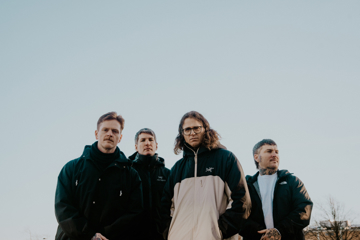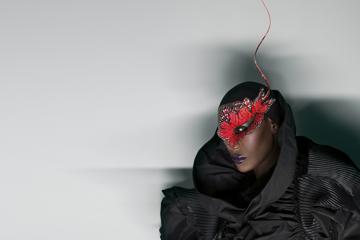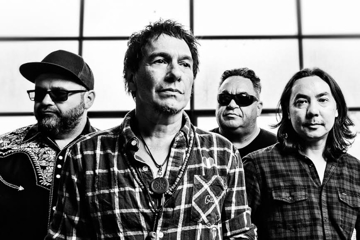'Wonder Woman' Needed To Be A Much Better Movie To Truly Break New Ground
"...just as generic as its male counterparts."
WONDER WOMAN

No $120mil popcorn movie should be a referendum on the contemporary state of gender politics. But, we live in clickbait times, and with the history of Wonder Woman indivisible from the history of feminism, the first-ever feature-length Wonder Woman film carries with it a great burden.
As the first-ever feature-length Wonder Woman film, the first-ever superhero picture to be directed by a woman, Patty Jenkins, and the first female-starring superhero picture of the post-MCU era, the film’s success or failure, financially, will be seen as a sign o’ the times. Yet, regardless of how much cash it makes, as a piece of cinema, Wonder Woman only proves that a female-starring, female-directed superhero movie can be just as generic as its male counterparts.
Don't miss a beat with our FREE daily newsletter
It’s all there: The childhood where the tragic death of a relative is a formative instance of innocence lost. The coming-of-age harnessing of vast powers. The discovery of a chosen-one mythos. The involvement in large-scale conflict in which our hero must choose how to employ said vast powers. The love interest with whom a chaste kiss is shared, before we quickly skip away to appease the censors. The tie-ins to other films based on IPs owned by the producing studio. The villain who shows the extremes of his villainy by shooting one of his own henchmen. Explosions. More explosions. The grand-standing CGI-blighted climax, in which hero and final-boss fight, throwing each other through buildings whilst the fate of the world is in the balance. That same fucking origin-story finish where said hero stands atop a tall building, looking out at the city below, then leaps off as we cut to credits.
There’s also, for those scoring clichés at home, no less than three moments where someone, kneeling, yells out ‘Noooooooooooo!’ at the death of a loved one, and the eye-of-God overhead cranes up in full ‘Mendozaaaaaa!’ style. Not to mention endless iterations of a move where an Amazonian warrior leaps into the air in a burst, pirouettes high in ultra slow-motion — perhaps whilst shooting multiple arrows — and then throttles back down to the ground.
Jenkins, making her first film since her 2003 debut Monster, brings nothing distinctive to the director’s chair; there’s no formal daring, visual invention, or even a shot that looks anything but formulaic. And the screenplay, by comic-writer Allan Heinberg — with some help from DC dark-cloud Zack Synder — seems just as uninspired; its origin story, though never brought to screen before, feeling fit to formula. (Random aside: there are numerous moments in which our heroine, multilingual immortal sage that she is, converses with people in various languages, which are subtitled on the screen. And, yet, all the Germans in the film, none of whom are played by actual Germans, all speak in English, just with real-bad Cherrr-man accents.)
Wonder Woman opens with a let-me-tell-you-a-story framing narrative, in which the contemporary Gal Gadot, her secret identity having been discovered by Ben Affleck in your favourite movie Batman V Superman: Dawn Of Justice, sets out to tell him — or, us, I guess — her story. “I used to want to save the world,” she pronounces, the film’s journey from her early idealism to a more-complicated/morally compromised portrait of heroism effectively echoing the change, over time, of superhero narratives themselves.
Like those earliest All-American heroes, Superman and Captain America, Wonder Woman was born in World War II, and instantly recruited for the US war efforts abroad. Here, she’s thrown back a generation, to WWI, when the femme utopia of Themyscira — a softly lensed, waterfall-dappled, twee-as-fuck Grecian-Isle-esque CGI-eyesore in which sword-and-sandal isn’t the genre, but the dress code — is ruptured by the hurtling phallus of a fighter plane, Yankee spy Chris Pine crash-landing on these pristine shores, pursued by a troupe of Krauts. “I’m one of the good guys, those are the bad guys,” Pine says, recapping the morality of early 20th-century conflict with comic-panel-preserving brevity.
Gadot has been raised, from when she was just a girl moulded out of clay by the gods, on this island of Amazon Women In The Mood. And, throughout her 5000 immortal years of warrior training, sparring sessions, youthful recalcitrance, and riding palominos in slow-motion across fields filled with yellow flowers, she’s never before seen a man. In the first hint that maybe this Wonder Woman isn’t exactly a trenchant reading of an ur-feminist text, she falls for the first cute boy she ever sees, hitching a ride with Pine O Cleen back to the Western Front, where she hopes to end the war in the war to end all wars.
For a solid 20 minutes, the film finally comes mildly to life as a fish-out-of-water comedy, in which the guileless, shameless, innocent-type Amazonian warrior asks Pine pressing questions about average male genital size, biological procreation, love, marriage. They land in a soot-blackened, smoke-belching London (“It’s hideous!” Gadot marvels), where our eye-catching heroine has to learn about camouflage and social niceties; about chaste behaviour, revolving doors, and ice-cream; and, also, about the feckless bureaucracy of wartime politicking, and the vile spinelessness of men in power.
As the comedy — and liveliness — melts away like so much ice-cream, our gal Gal beats up various bad guys, refuses to be silent, stands up for her virtuous values, remains headstrong and independent, and is unwavering in her mission to take down Danny Huston’s meth-huffing German general, and his very-comic-book-sounding devil-doer ‘Dr. Poison’, played by a half-masked Elena Anaya, evoking her turn in Pedro Almodóvar’s The Skin I Live In. Throughout, Pine is Gadot’s perennial off-sider, love-interest, and, for the final two hours, sharer of the narrative, those hoping for a female comic-book movie wholly about a superheroine sure fed a lot of the guy who previously headlined Star Trek and Jack Ryan: Shadow Recruit.
Pine also gathers a rag-tag crew to help them on their mission: Saïd Taghmaoui in a red fez, Ewen Bremner in kilt and tam o’ shanter, and Eugene Brave Rock as a disaffected Native American trader actually named Chief. As this unlikely sports team battles against the rank-outsider odds, the blockbuster lesson du jour is that a group of multicultural oddballs forever thwarts a domineering totalitarian monoculture. Whilst there’s fun to be had when the gang crash a Deutsch gala in a castle, there’s no fun once things enter the big-final-showdown stage, and we get served up a levitating-villain-who-grimaces-and-holds-his-palms-aloft-whilst-things-whoosh-about-him-Magneto-style, and the battle for good and evil involves thunder and lightning and fireballs and explosions and heroic sacrifice and spoken-aloud declarations of character values.
There are symbolic gender-studies moments herein — Wonder Woman treads on the glasses meant to preserve her secret identity whilst beating up bad guys; Wonder Woman defiantly runs through No Man’s Land, treading where no man can; Wonder Woman says things to chaps like “What I do is not up to you!” — but each seems clumsy, clunky. That this film marks a female entry into a hyper-masculine genre is notable, but ultimately immaterial. For Wonder Woman to truly be some kind of pop-cultural epoch, the film itself would need to be much better than it actually is.







